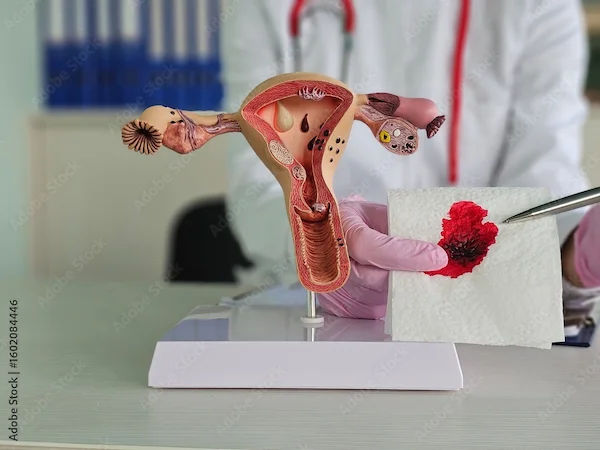Understanding Stillbirth and Its Management
Learn what stillbirth is, its causes, signs, and how to cope with emotional and physical recovery. Understand ways to prevent stillbirth and when to seek medical support.


Losing a baby before birth is one of the most heartbreaking experiences a family can go through. Stillbirth—when a baby dies in the womb after 20 weeks of pregnancy—can leave parents with deep emotional pain and many unanswered questions. If you or someone you know has faced this loss, it’s important to understand what stillbirth is, why it happens, and how to cope with it.
This article aims to provide compassionate, easy-to-understand information about stillbirth, its possible causes, and ways to manage the emotional and physical aftermath.
What Is Stillbirth?
Stillbirth occurs when a baby dies in the womb after the 20th week of pregnancy. Unlike a miscarriage (which happens earlier in pregnancy), stillbirth often occurs closer to the due date, making the loss even more devastating.
Types of Stillbirth
1. Antepartum Stillbirth – The baby dies before labor begins.
2. Intrapartum Stillbirth – The baby dies during labor or delivery.
While stillbirth is rare (about 1 in 160 pregnancies), it can happen to anyone, sometimes without a clear cause.
Possible Causes of Stillbirth
In many cases, the exact reason for stillbirth remains unknown. However, some common causes include:
1. Placental Problems
The placenta provides oxygen and nutrients to the baby. If it doesn’t function properly (due to conditions like placental abruption or preeclampsia), the baby may not get enough support.
2. Birth Defects or Genetic Conditions
Some stillbirths happen because of chromosomal abnormalities or physical defects in the baby’s development.
3. Infections
Certain infections (like cytomegalovirus, listeria, or syphilis) can affect the baby and lead to stillbirth.
4. Umbilical Cord Issues
If the cord gets twisted, compressed, or knotted, it can cut off the baby’s oxygen supply.
5. Maternal Health Conditions
Health problems in the mother, such as diabetes, high blood pressure, or clotting disorders, can increase the risk.
Consult Top Specialists
6. Lifestyle Factors
Smoking, alcohol use, drug abuse, and obesity can contribute to stillbirth.
Signs of Stillbirth
Sometimes, there are no warning signs. However, some possible symptoms include:
No fetal movement (if the baby stops kicking or moving).
Bleeding or unusual discharge.
Severe abdominal pain.
If you notice any of these signs, contact your doctor immediately.
Coping with Stillbirth: Emotional and Physical Recovery
Losing a baby is an overwhelming experience. Here are some ways to help with the healing process:
1. Allow Yourself to Grieve
There is no "right" way to feel after a stillbirth. Some parents feel anger, sadness, guilt, or numbness—all these emotions are normal. Give yourself time to process the loss.
2. Seek Support
Talk to loved ones – Sharing your feelings with family or friends can help.
Join a support group – Connecting with others who have experienced stillbirth can provide comfort.
Professional counseling – A therapist can help you work through grief in a safe space.
3. Physical Recovery
After delivery, your body will need time to heal. Follow your doctor’s advice on:
Rest and recovery.
Managing postpartum bleeding.
Watching for signs of infection.
4. Memorializing Your Baby
Some parents find comfort in creating memories, such as:
Naming the baby.
Holding a small ceremony.
Keeping a keepsake (like footprints or a photo).
Preventing Stillbirth in Future Pregnancies
If you plan to conceive again, your doctor may recommend:
Regular prenatal check-ups to monitor the baby’s growth.
Managing chronic conditions like diabetes or high blood pressure.
Avoiding smoking, alcohol, and drugs.
Monitoring fetal movements (keeping track of kicks).
Early delivery (if there are risks, doctors may suggest inducing labor before the due date).
While not all stillbirths can be prevented, taking these steps can help reduce risks.
When to Seek Medical Help
If you are pregnant and notice:
Decreased fetal movement
Severe pain or bleeding
Any unusual symptoms
Contact your doctor immediately. Early detection of problems can sometimes prevent stillbirth.
Final Thoughts
Stillbirth is a deeply painful experience, and no parent should go through it alone. If you have faced this loss, know that your feelings are valid, and support is available.
If you are planning another pregnancy or have concerns about stillbirth, consulting a doctor can help provide guidance and reassurance. Apollo24|7 offers compassionate care and expert advice; book a consultation today for personalized support.
Consult Top Specialists
Consult Top Specialists
Dr. Gaddam Manoj
General Practitioner
1 Years • MBBS
Hyderabad
Aaradhya clinic, Hyderabad

Dr Syed Mateen Pasha
General Physician
2 Years • MBBS
Bengaluru
PRESTIGE SHANTHINIKETAN - SOCIETY CLINIC, Bengaluru

Dr. Anand Ravi
General Physician
2 Years • MBBS
Bengaluru
PRESTIGE SHANTHINIKETAN - SOCIETY CLINIC, Bengaluru

Dr. Syed Ismail Ali
General Practitioner
7 Years • MBBS
Hyderabad
Apollo 24|7 Clinic, Hyderabad

Dr. Madhuri Sai Sreepada
General Practitioner
9 Years • MBBS
Hyderabad
BRIGHT SMILES MEDICARE & DENTAL CARE, Hyderabad




